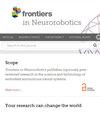Deep learning-based control framework for dynamic contact processes in humanoid grasping
IF 2.6
4区 计算机科学
Q3 COMPUTER SCIENCE, ARTIFICIAL INTELLIGENCE
引用次数: 0
Abstract
Humanoid grasping is a critical ability for anthropomorphic hand, and plays a significant role in the development of humanoid robots. In this article, we present a deep learning-based control framework for humanoid grasping, incorporating the dynamic contact process among the anthropomorphic hand, the object, and the environment. This method efficiently eliminates the constraints imposed by inaccessible grasping points on both the contact surface of the object and the table surface. To mimic human-like grasping movements, an underactuated anthropomorphic hand is utilized, which is designed based on human hand data. The utilization of hand gestures, rather than controlling each motor separately, has significantly decreased the control dimensionality. Additionally, a deep learning framework is used to select gestures and grasp actions. Our methodology, proven both in simulation and on real robot, exceeds the performance of static analysis-based methods, as measured by the standard grasp metric基于深度学习的仿人抓取动态接触过程控制框架
仿人抓取是拟人手的一项关键能力,在仿人机器人的发展中发挥着重要作用。在这篇文章中,我们提出了一种基于深度学习的仿人抓取控制框架,将拟人手、物体和环境之间的动态接触过程纳入其中。这种方法能有效消除物体接触面和工作台表面上无法触及的抓取点所带来的限制。为了模仿人类的抓取动作,我们使用了根据人类手部数据设计的欠驱动拟人手。利用手势而不是单独控制每个电机,大大降低了控制维度。此外,还使用了深度学习框架来选择手势和抓握动作。我们的方法在模拟和真实机器人上都得到了验证,其性能超过了基于静态分析的方法,以标准抓取指标 Q1 来衡量。它扩大了系统可抓取的物体范围,有效地抓取了桌子上的卡片等薄物品,这超出了以往方法的能力范围。
本文章由计算机程序翻译,如有差异,请以英文原文为准。
求助全文
约1分钟内获得全文
求助全文
来源期刊

Frontiers in Neurorobotics
COMPUTER SCIENCE, ARTIFICIAL INTELLIGENCER-ROBOTICS
CiteScore
5.20
自引率
6.50%
发文量
250
审稿时长
14 weeks
期刊介绍:
Frontiers in Neurorobotics publishes rigorously peer-reviewed research in the science and technology of embodied autonomous neural systems. Specialty Chief Editors Alois C. Knoll and Florian Röhrbein at the Technische Universität München are supported by an outstanding Editorial Board of international experts. This multidisciplinary open-access journal is at the forefront of disseminating and communicating scientific knowledge and impactful discoveries to researchers, academics and the public worldwide.
Neural systems include brain-inspired algorithms (e.g. connectionist networks), computational models of biological neural networks (e.g. artificial spiking neural nets, large-scale simulations of neural microcircuits) and actual biological systems (e.g. in vivo and in vitro neural nets). The focus of the journal is the embodiment of such neural systems in artificial software and hardware devices, machines, robots or any other form of physical actuation. This also includes prosthetic devices, brain machine interfaces, wearable systems, micro-machines, furniture, home appliances, as well as systems for managing micro and macro infrastructures. Frontiers in Neurorobotics also aims to publish radically new tools and methods to study plasticity and development of autonomous self-learning systems that are capable of acquiring knowledge in an open-ended manner. Models complemented with experimental studies revealing self-organizing principles of embodied neural systems are welcome. Our journal also publishes on the micro and macro engineering and mechatronics of robotic devices driven by neural systems, as well as studies on the impact that such systems will have on our daily life.
 求助内容:
求助内容: 应助结果提醒方式:
应助结果提醒方式:


